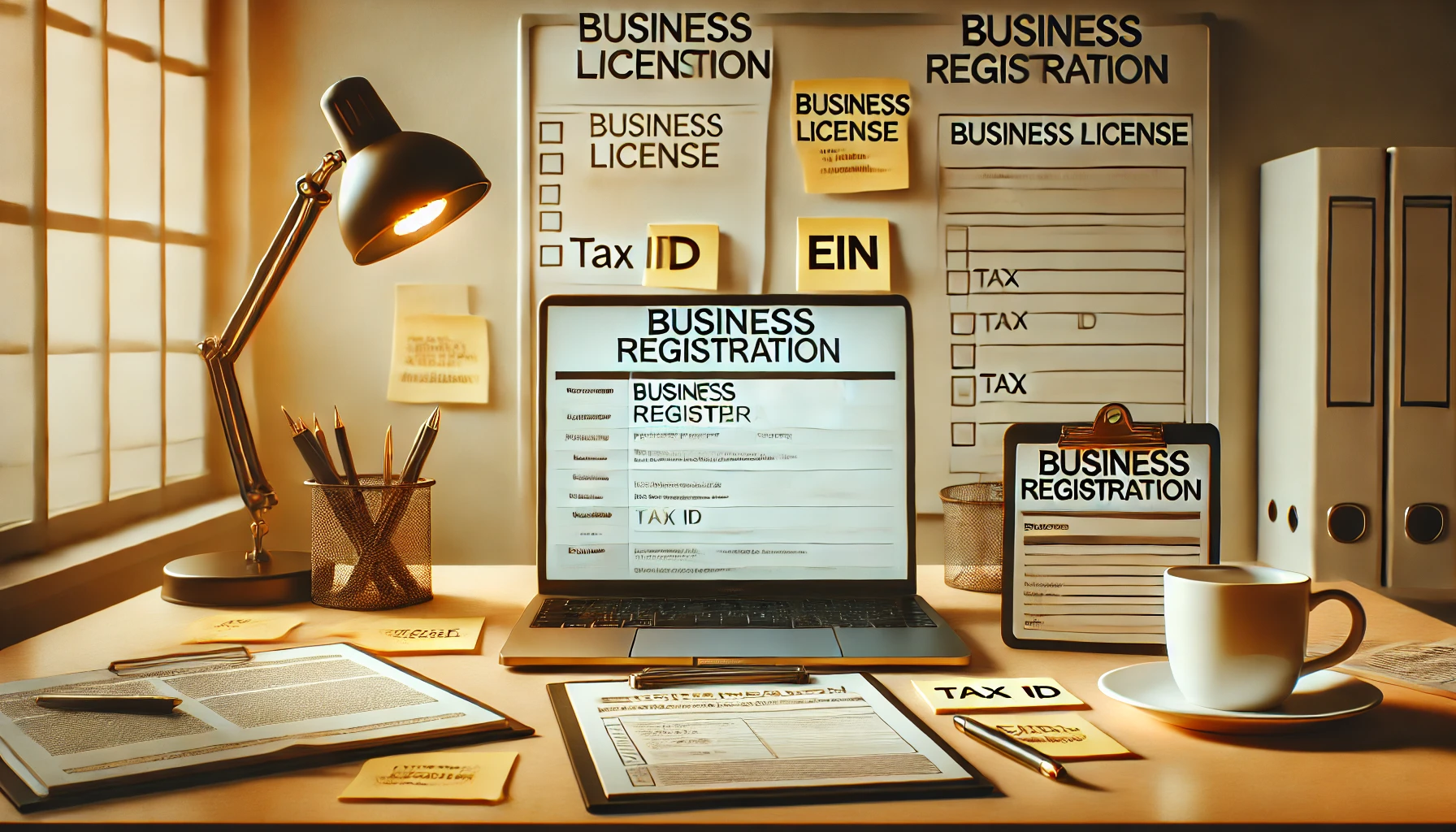Starting a business is exciting, but before you start selling products or services, it’s crucial to register your business properly and comply with legal requirements. This step helps you avoid legal issues, build trust with customers, and protect your personal assets. In this guide, we’ll cover everything you need to know about registering your business and handling legal obligations.
1. Choose the Right Business Structure
The type of business structure you choose affects your taxes, legal responsibilities, and personal liability. Here are the most common options:
Common Business Structures:
- Sole Proprietorship – Easy to set up; you are personally responsible for all business debts.
- Limited Liability Company (LLC) – Protects personal assets; suitable for small businesses.
- Partnership – Shared ownership between two or more people.
- Corporation (C-Corp or S-Corp) – Suitable for larger businesses; complex tax requirements.
✅ Example: If you’re starting a freelance design business, a sole proprietorship or LLC might be the best choice.
2. Register Your Business Name
Your business name is your brand, so make sure it’s legally protected.
How to Register a Business Name:
- Check Availability: Use government databases to see if the name is already taken.
- Trademark Protection: If you want exclusive rights, register a trademark.
- Get a Domain Name: Secure a website domain that matches your business name.
🌍 Example: If your business name is “EcoGlow Skincare”, check if ecoglowskincare.com is available before finalizing your brand.
3. Get an Employer Identification Number (EIN) or Tax ID
An EIN (Employer Identification Number) is required for businesses that hire employees or operate as an LLC or corporation.
Why You Need an EIN:
- Required for opening a business bank account.
- Needed for hiring employees.
- Helps with business tax filing.
💡 Tip: If you’re a sole proprietor without employees, you might not need an EIN—you can use your Social Security Number (SSN) for tax purposes.
4. Obtain Necessary Licenses and Permits
Depending on your industry and location, you may need specific licenses and permits to operate legally.
Common Business Licenses & Permits:
- General Business License – Required in most cities or states.
- Professional License – Needed for certain industries (e.g., real estate, healthcare).
- Home-Based Business Permit – Required if running a business from home.
- Health & Safety Permits – Necessary for food businesses.
📌 Example: If you’re opening a catering business, you may need a food handler’s license and a health department permit.
5. Open a Business Bank Account
Separating business and personal finances is essential for legal protection and financial organization.
Why Open a Business Bank Account?
- Protects personal assets from business liabilities.
- Makes tax filing easier by keeping transactions separate.
- Helps build business credit for future loans.
💰 Tip: Some banks offer free business checking accounts—compare fees and benefits before choosing one.
6. Register for Business Taxes
Different businesses have different tax obligations, depending on their structure and location.
Common Business Taxes:
- Income Tax – Based on business profits.
- Sales Tax – Charged if selling taxable goods/services.
- Payroll Tax – If you have employees.
💵 Example: If you sell handmade jewelry, you may need to collect and pay sales tax in your state.
7. Get Business Insurance
Insurance protects your business from unexpected risks, such as lawsuits or property damage.
Types of Business Insurance:
- General Liability Insurance – Covers accidents and legal claims.
- Professional Liability Insurance – Protects service-based businesses (e.g., consultants, coaches).
- Product Liability Insurance – Important for businesses selling physical products.
✅ Example: If you run an e-commerce store, product liability insurance can protect you if a customer is injured by your product.
8. Create Legal Contracts for Clients & Partners
Contracts protect your business relationships and prevent disputes.
Essential Business Contracts:
- Client Agreements – Defines scope of work and payment terms.
- Partnership Agreements – If starting a business with someone else.
- Supplier Contracts – If you work with manufacturers or wholesalers.
📄 Tip: Use legal templates or consult a business lawyer to draft contracts.
9. Understand Online Business Laws
If you’re running an online business, you must comply with digital regulations.
Key Online Business Legal Requirements:
- Privacy Policy & Terms of Use – Required if collecting customer data.
- GDPR Compliance – If serving European customers, you must protect their data.
- Copyright Laws – Avoid using copyrighted images, videos, or music.
🌐 Example: If you run an online store, you need a privacy policy explaining how customer data is collected and used.
10. Stay Updated on Legal Compliance
Laws and regulations change, so it’s important to stay compliant.
How to Keep Your Business Legally Safe:
- Renew Licenses & Permits annually.
- Track Tax Deadlines to avoid penalties.
- Stay Informed on Law Changes in your industry.
📌 Tip: Set reminders for license renewals and tax deadlines to avoid legal trouble.
Final Thoughts: Registering Your Business the Right Way
Registering your business properly ensures long-term success and legal protection. By following these 10 steps, you’ll set up a strong foundation for your business while avoiding legal pitfalls.
🚀 Your Next Step: Have you registered your business yet? Let me know if you need guidance in the comments!
